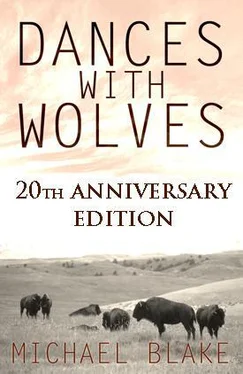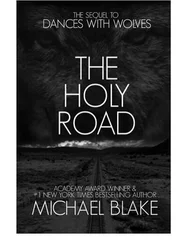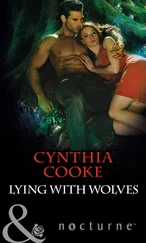Michael Blake - Dances With Wolves
Здесь есть возможность читать онлайн «Michael Blake - Dances With Wolves» весь текст электронной книги совершенно бесплатно (целиком полную версию без сокращений). В некоторых случаях можно слушать аудио, скачать через торрент в формате fb2 и присутствует краткое содержание. Год выпуска: 2011, Жанр: prose_military, на английском языке. Описание произведения, (предисловие) а так же отзывы посетителей доступны на портале библиотеки ЛибКат.
- Название:Dances With Wolves
- Автор:
- Жанр:
- Год:2011
- ISBN:нет данных
- Рейтинг книги:3 / 5. Голосов: 1
-
Избранное:Добавить в избранное
- Отзывы:
-
Ваша оценка:
- 60
- 1
- 2
- 3
- 4
- 5
Dances With Wolves: краткое содержание, описание и аннотация
Предлагаем к чтению аннотацию, описание, краткое содержание или предисловие (зависит от того, что написал сам автор книги «Dances With Wolves»). Если вы не нашли необходимую информацию о книге — напишите в комментариях, мы постараемся отыскать её.
Dances With Wolves — читать онлайн бесплатно полную книгу (весь текст) целиком
Ниже представлен текст книги, разбитый по страницам. Система сохранения места последней прочитанной страницы, позволяет с удобством читать онлайн бесплатно книгу «Dances With Wolves», без необходимости каждый раз заново искать на чём Вы остановились. Поставьте закладку, и сможете в любой момент перейти на страницу, на которой закончили чтение.
Интервал:
Закладка:
Wolves were appearing from all directions. They would be crouching at the shoulders and haunches and bellies as soon as the column passed.
But there would be more than enough for every wolf and bird within miles. The lieutenant calculated roughly and came up with a figure of fifteen thousand. Fifteen thousand pounds of dead flesh decaying in the hot afternoon sun.
All this left to rot, he thought, wondering if some archenemy of his Indian friends had left this as a macabre warning.
Twenty-seven hides had been stripped away from neck to buttocks, and as he passed within feet of a particularly large animal, he saw that its open mouth held no tongue. Others had been robbed of their tongues, too. But that was all. Everything else had been left.
Lieutenant Dunbar suddenly thought of the dead man in the alley. Like these buffalo, the man had been lying on his side. The bullet that had been fired into the base of his skull had taken the right side of the man’s jaw out when it exited.
He had been just John Dunbar then, a fourteen-year-old boy. In succeeding years he’d seen scores of dead men: with whole faces missing, men whose brains leaked onto the ground like spilled mush. But the first dead man was the one he remembered best. Mainly because of the fingers.
He’d been standing right behind the constable when it was discovered that two of the dead man’s fingers had been sliced off. The constable had looked around and said to no one in particular, “This fella got killed for his rings.”
And now these buffalo lying dead on the ground, their guts spread all over the prairie just because someone wanted their tongues and hides. It struck Dunbar as the same kind of crime.
When he saw an unborn calf, half hanging from its mother’s slit abdomen, the same word he’d first heard that evening in the alley jumped into his mind like a glowing sign.
Murder.
He glanced at Kicking Bird. The medicine man was staring at the wreckage of the unborn calf, his face a long, sober mask.
Lieutenant Dunbar turned away then and looked back along the column. The whole band was weaving its way through the carnage. Hungry as they were after weeks of scraps, no one had stopped to help himself or herself to the bounty spread out around them. The voices that had been so raucous all morning were now stilled, and he could see in their faces the melancholy that comes from knowing a good trail has suddenly turned bad.
The horses were casting giant shadows by the time they reached the hunting grounds. While the women and children set to work pitching camp in the lee of a long ridge, most of the men rode ahead to scout the herd before night fell.
Lieutenant Dunbar went with them.
About a mile from the new camp they rendezvoused with three scouts who had made a little camp of their own a hundred yards from the mouth of a wide draw.
Leaving their horses below, sixty Comanche warriors and one white man started quietly up the long western slope leading out of the draw. As they neared the crest, everyone dropped close to the ground and crawled the final yards.
The lieutenant looked expectantly at Kicking Bird and was met with a shallow smile. The medicine man pointed ahead and put a finger to his lips. Dunbar knew they had arrived.
A few feet in front of him the earth fell away to nothing but sky, and he realized they had surmounted the back side of a cliff. The stiff prairie breeze bit into his face as he lifted his head and peered into a great depression a hundred feet below.
It was a magnificent dish of a valley, four or five miles wide and at least ten miles across. Grass of the most luxuriant variety was rippling everywhere.
But the lieutenant barely noticed the grass or the valley or its dimensions. Even the sky, now building with clouds, and the sinking sun, with its miraculous display of cathedral rays, could not compare with the great, living blanket of buffalo that covered the valley floor.
That this many creatures existed, let alone occupied the same immediate space, set the lieutenant’s mind spinning with incalculable figures. Fifty, seventy, a hundred thousand? Could there be more? His brain backed away from the enormity of it.
He didn’t shout or jump or whisper to himself in awe. Witnessing this put everything but that which he was seeing in suspension. He didn’t feel the little, odd-sized rocks pinching against his body. When a blue wasp landed on the point of his slackened jaw he didn’t brush at it. All he could do was blink at the coating of wonder that glazed his eyes.
He was watching a miracle.
When Kicking Bird tapped him on the shoulder, he realized his mouth had been open the whole time. It was parched dry by the prairie wind.
He swung his head dully and looked back along the slope.
The Indians had started down.
They had been riding in darkness for half an hour when the fires appeared, like faraway dots. The strangeness of it was like a dream. Home, he thought. That’s home.
How could it be? A temporary camp of fires on a distant plain, peopled by two hundred aborigines whose skin was different than his, whose language was a tangle of grunts and shouts, whose beliefs were yet a mystery and probably always would be.
But tonight he was very tired. Tonight it promised the comfort of a birthplace. It was home and he was glad to see it. The others, the scores of half-naked men with whom he’d been riding the last few miles, were glad to see it, too. They had begun talking again. The horses could smell it. They were walking high on their toes now, trying to break into a trot.
He wished he could see Kicking Bird among the vague shapes around him. The medicine man said a lot with his eyes, and out here in the darkness, bunched so intimately with these wild men as they approached their wild camp, he felt helpless without Kicking Bird’s telling eyes.
A half mile out he could hear voices and the beat of drums. A buzzing swept the ranks of his fellow riders and suddenly the horses surged into a run. They were packed so tightly and moving at such a good clip that, for a moment, Lieutenant Dunbar felt part of an unstoppable energy, a breaking wave of men and horses that no one would dare to oppose.
The men were yipping, high and shrill, like coyotes, and Dunbar, caught up as he was in the excitement, let out a few barks of his own.
He could see the flames of the fires and the silhouettes of people milling about the camp. They were aware of the returning riders now and some were running onto the prairie to meet them.
He had a funny feeling about the camp, a feeling that told him it was unusually agitated, that something out of the ordinary had happened during their absence. His eyes widened as he rode closer, trying to pick up some clue that would tell him what was different.
Then he saw the wagon, parked at the fringes of the largest fire, as out of place as a fine carriage floating on the surface of the sea.
There were white people in camp.
He pulled Cisco up hard, letting the other riders blow past while he hung back to collect his thoughts.
The wagon looked crude to him, a thing of ugliness. As Cisco danced nervously under him, the lieutenant was startled by his own thoughts. He imagined the voices that had come with it, he didn’t want to hear them. He didn’t want to see the white faces that would be so eager to see his. He didn’t want to answer their questions. He didn’t want to hear the news he’d missed.
But he knew he had no choice. There was no place else to go. He fed Cisco a little rein and they walked forward slowly.
He paused when he was within fifty yards. The Indians were dancing about exuberantly as the men who had scouted the herd jumped off their horses. He waited for the ponies to clear out, then he scanned all the faces in his line of sight.
Читать дальшеИнтервал:
Закладка:
Похожие книги на «Dances With Wolves»
Представляем Вашему вниманию похожие книги на «Dances With Wolves» списком для выбора. Мы отобрали схожую по названию и смыслу литературу в надежде предоставить читателям больше вариантов отыскать новые, интересные, ещё непрочитанные произведения.
Обсуждение, отзывы о книге «Dances With Wolves» и просто собственные мнения читателей. Оставьте ваши комментарии, напишите, что Вы думаете о произведении, его смысле или главных героях. Укажите что конкретно понравилось, а что нет, и почему Вы так считаете.












